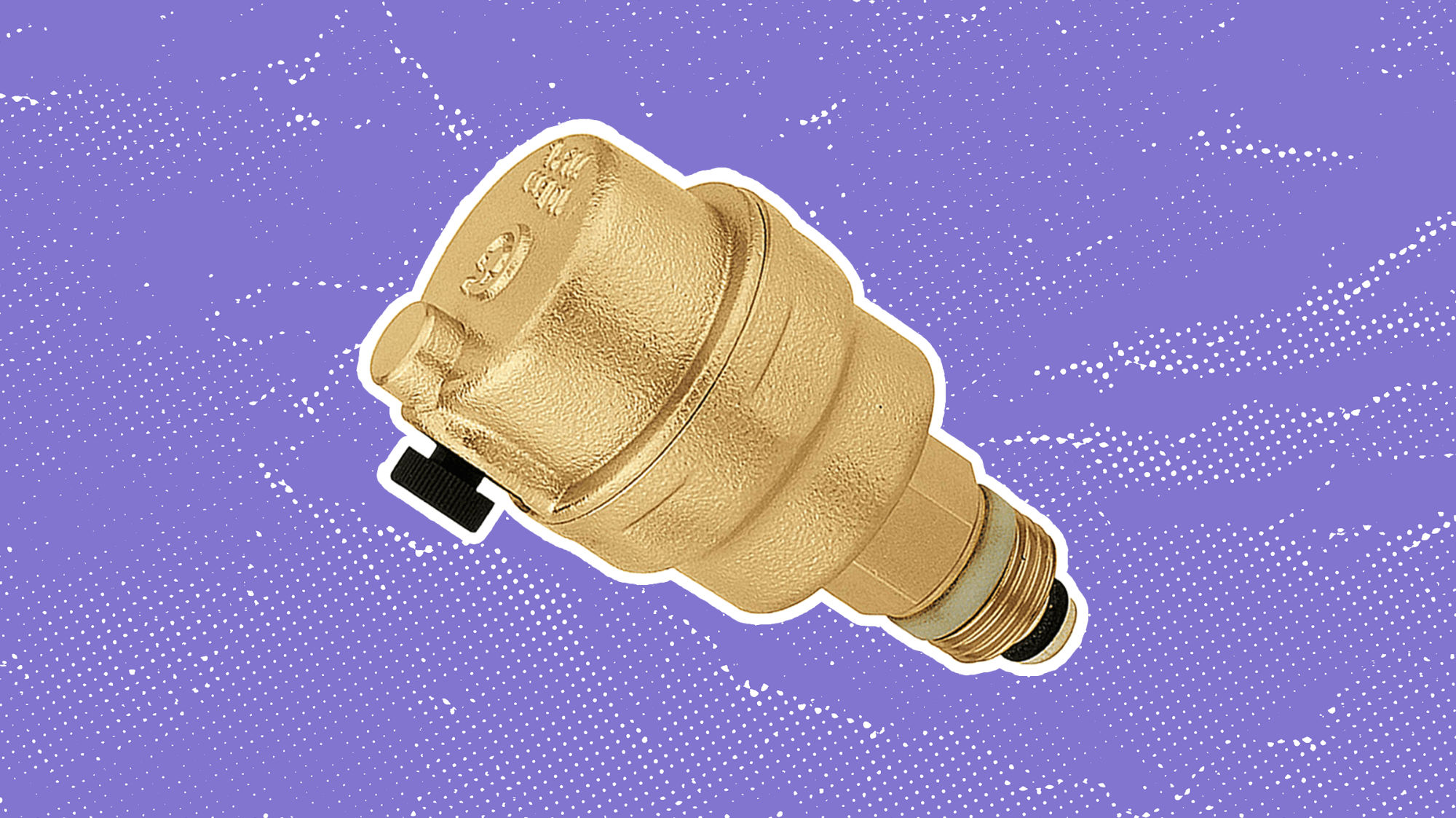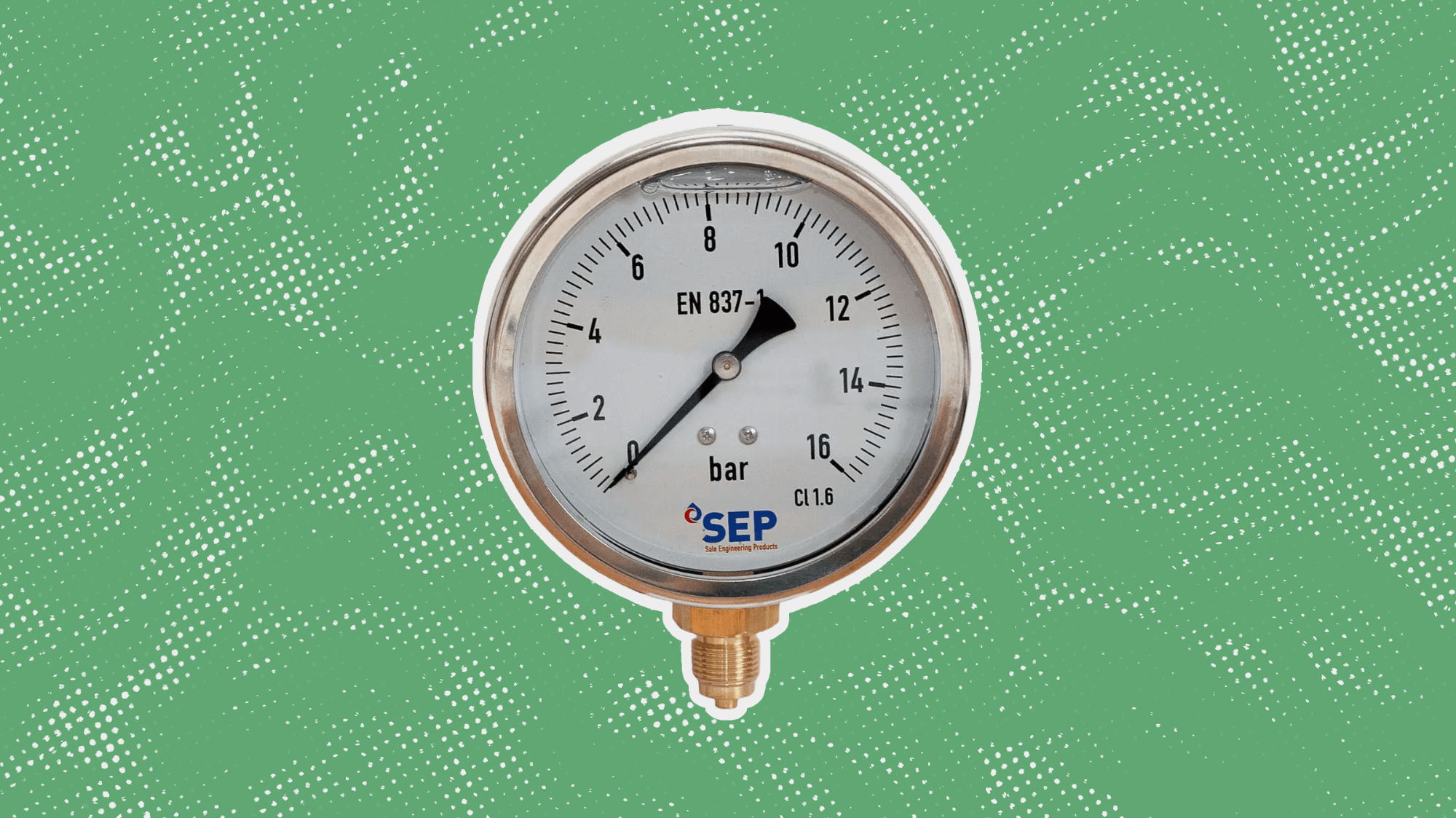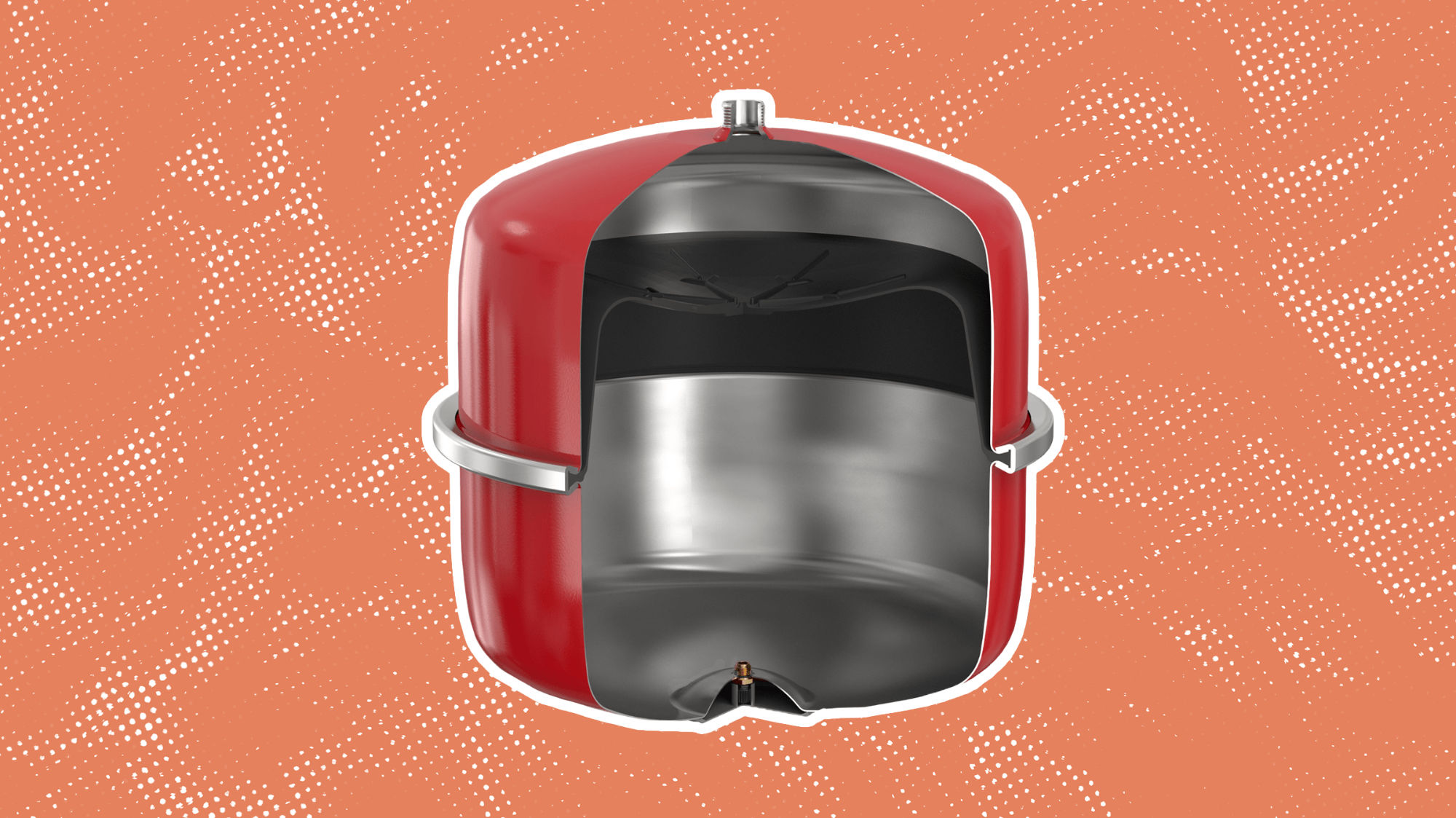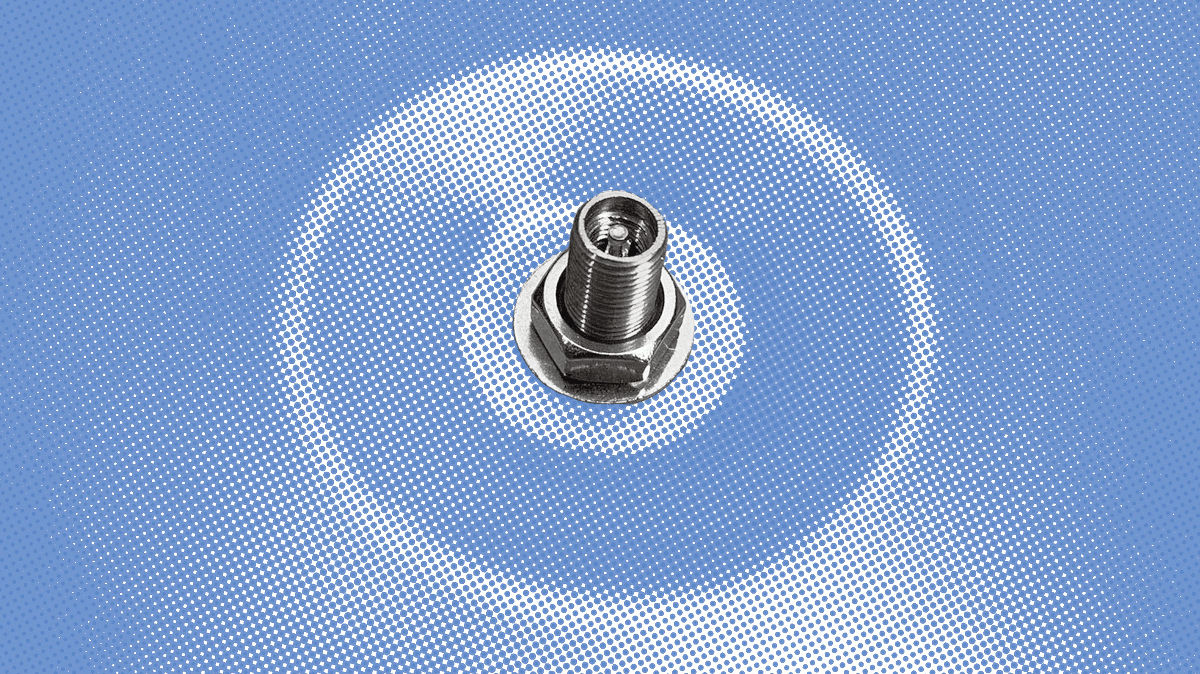Leeks make great additions to soup. But leaks make poor additions to a boiler.
While you’d naturally associate a loss of combi boiler pressure with a leak, you may be wondering whether it’s possible even without a leak.
In this guide, we’ll answer this question and explain some of the most common causes of boiler pressure loss and what you can do about it.
Let’s go!
Boiler old, unreliable and costing a fortune in repairs? Simply answer these questions, get your fixed price and you could get a new one installed as quick as tomorrow.
What is Boiler Pressure?
A combi boiler’s water pressure refers to the balance of air and water inside your boiler’s sealed system.
For a boiler to function correctly, a certain air-water balance is necessary. You’ll be able to determine the boiler pressure at any given time by checking your pressure gauge.
In most cases, the pressure gauge should read a pressure level of between 1 bar and 2 bar.
However, the ideal range can differ from boiler to boiler, therefore, to be absolutely sure check what the correct pressure water is for your model using the manufacturer’s instructions.
While a leak is one of the common explanations for a boiler losing pressure, it is certainly not the only reason.
In fact, if there are no signs of a leak, there is probably another explanation.
With that being said, if you can’t actually see a leak that doesn’t mean it’s not there.
However, by running through the possible causes laid out in the next section you may be able to rule it out.
Ultimately though, if you’re unsure, always consult with a qualified heating engineer.
Causes of a Loss of Combi Boiler Pressure
Note: To learn how to fix a combi boiler losing pressure skip to the next section ‘How to repressurise a combi boiler’.
Please be aware that there is a wide range of reasons why a combi boiler might lose pressure whether overnight or slowly over time.
Prefer video? Check out our YouTube video on common causes of low boiler pressure below
There is a Leak in the Heating System
First and foremost, there may very well be a leak coming from your combi boiler or elsewhere in the heating system.
We imagine that there is (at the very least) no obvious leak coming from your boiler/heating system since you’ve clicked on this article.
However, whether there’s a crystal-clear leak or one that you cannot identify immediately, this would be an issue for a heating engineer to solve.
If you are concerned that your boiler/heating system is leaking, you should have it fixed as soon as possible.
Either way, your boiler will not work, nor should it be used when it or your heating system leaks.
Repressuring Your Boiler is Required
Note: If you don’t see a leak, this is probably the answer.
Now, let’s move on to the alternative expansions.
As mentioned, there are several other common reasons why a boiler would lose pressure including the slow natural loss of pressure.
Over time boilers can lose pressure and when this occurs, they will need to be repressurised or topped up.
As mentioned, we’ll explore how to repressurise a boiler in more detail toward the end of this article.
Is your radiator leaking? It may be a lockshield valve leaking.
Radiators Must Be Bled
If your radiators or/and towel radiators are full of air pockets, you’ll need to bleed them.
This is worth doing from time to time anyway so if you can’t find any leaks and repressurising your boiler fails, the next port of call should be to bleed your radiators.
Auto Air Vent Leak
Another consideration worth taking into account is that air pockets have developed in your central heating over time.

This can even occur when it’s being refilled. If you have a reasonably new combi that features auto air venting, it’s possible that this feature has experienced a fault.
Ultimately, your boiler may be experiencing an auto air vent leak. Please note that only a Gas Safe Register engineer can address this type of leak.
The Pressure Release Valve Is Faulty
As pressure rises in a boiler, the pressure release valve should be able to determine when the pressure is too high.
This way it would release pressure so as to lower it. Unfortunately, however, a faulty PRV could see your boiler lose pressure and this could occur fast.
Again, the fix here is not DIY friendly and requires a professional.
Faulty Pressure Gauge
Another potential explanation is that the actual pressure gauge is faulty.

This is an unlikely scenario but if you have any reason to suspect it may be the case, this could be dangerous, and you should hire a heating engineer immediately. You should also turn off your boiler in the meantime.
After all, with a faulty pressure gauge (showing pressure to be low when it’s not), you could end up topping up your boiler far too much, causing the pressure to go way too high.
One way of telling whether your pressure gauge is faulty is by ensuring you pay close attention to the pressure gauge when topping up (which you should anyway) and checking whether it changes.
If the pressure gauge stays stuck in the same position, it means that it probably is broken.
The only other viable explanation for this scenario would be a massive leak and one that you very likely wouldn’t miss. One way or another, this too is an issue that only a heating engineer can solve.
Other Causes of a Boiler Losing Pressure
Note: All of the below issues can only be fixed by a qualified heating engineer.
Aside from the potential explanations discussed above, here are a few other possible, albeit unlikely causes of a boiler losing pressure:
An issue with the expansion vessel
Once in a while a qualified heating engineer will need to repressurise your boiler’s expansion vessel. So, to clarify, that would not be a DIY job.

If it is not repressured from time to time, your boiler can end up losing pressure.
However, even if it is, should the vessel’s diaphragm wear down significantly over time, this can also result in declining boiler pressure.
Schraeder valve is leaking
The Schraeder valve can be found on a boiler expansion vessel. It resembles the inner tube found in a car.

If this valve becomes faulty, it can cause a loss of boiler pressure. Again, this could only be fixed by a professional.
Soldered joints leakage
If you have a fairly old boiler, there’s a risk that the soldered joints of your boiler have weakened leading to a fresh leak. Again, this is improbable but not impossible.
How to Repressurise a Combi Boiler
Among the only DIY-friendly solutions to a combi boiler with low pressure is repressuring or topping it up.
As mentioned in the previous section, you can also try bleeding radiators as long as you know what’s involved.
However, if you believe that your boiler has simply lost pressure slowly over time, there are steps you can take to fix it.
Please be aware that you should still follow your manufacturer’s instructions for topping up a combi boiler while using our steps listed below as an overview/introduction.
Here is how you can top up/repressurise a combi boiler:
Turn your boiler off and let it fully cool down.
Find the filling loop and only proceed further once you know that each end is securely attached. The filling loop will probably already be attached; however, it may need to be attached in some models if it is not a built-in filling loop. Again, refer to the manufacturer’s instructions to make sure. Since a valve leak could explain why your boiler has lost pressure, you should, at this stage, check whether there is any water surrounding the valves at this location of your boiler. If there is, you’ll need to call out a professional and remove the filling loop once more if it is an attachable one. If there is no leak, continue to the next step.
Open each of the valves at the same time and watch the pressure gauge while doing so. This action will let cold water enter the system thus topping it up.
Once the pressure gauge reaches the middle point of the correct range given by the manufacturer’s manual (usually this will be 1.5 bar), close both valves simultaneously.
Turn your boiler on again and check the pressure gauge to ensure that it’s in the correct range.
Please note that if you accidentally add too much pressure to your system (e.g., it ends up at, say, 2.3 bar), you can fix this by simply bleeding your radiators to lower the pressure back to within the safe range.
Cost of Hiring a Professional to Fix a Combi Boiler Losing Pressure
Whether it’s because there’s an issue that only a professional can fix or you’d simply rather hire a qualified heating engineer (e.g., to bleed your radiators), you’ll probably want to know about the price.
On average, heating engineers charge between £30 and £60 per hour in the UK, although labour costs differ throughout the country.
When hiring a heating engineer for a job you’d need to pay at least the labour fee and supply costs may also apply depending on the nature of the job.
Here are the average costs of hiring a heating engineer to fix a combi boiler with low/declining pressure:
Fixing a leak in your boiler or heating system - £60 to £220
Repressuring a boiler - £30 to £60
Bleeding 5-10 radiators - £70 to £100
Bleeding 10-15 radiators - £100 to £150
Fixing an auto air vent leak - £30 to £60
Repairing or replacing a faulty pressure release valve - £130 to £220
Fixing or replacing a faulty pressure gauge - £50 to £160
Repressuring an expansion vessel - £30 to £120
Repairing or replacing an expansion vessel - £130 to £420
Fixing a leaking Schraeder valve or replacing one - £35 to £125
Fixing leaking soldered joints or replacing them - £30 to £220
Replacing an entire boiler * - £800 to £2,800
*There are some very rare scenarios where issues with your boiler or a list of accumulative problems may mean that it is beyond economic repair. In this case, you may want to consider having it replaced.
However, should this happen, the bill may seem an impossible feat in this current economic climate.
If this concerns you, we recommend looking into the option of purchasing a boiler on finance.
This is essentially a way of buying a boiler now and paying later.
While it usually involves paying interest there is a range of zero-interest options on the market.
Considering underfloor heating? Read our complete guide on underfloor heating with a combi boiler.
Get a Quote for a New Boiler Today
If you’re aiming to get the best deal on a new boiler, consider getting a quote from us, here’s why:
Gas Safe installation within 24 hours.
Thousands of satisfied customers with an average score of 4.9 on Trustpilot, surpassing the market leader.
Which? Trusted Trader: Heatable is proudly recognised as a Which? Trusted Trader.
Price match guarantee: We will match any like-for-like cheaper quote.
Flexible payment options, including interest-free finance.
Up to 12-year guarantee on selected boilers.
Fixed price guarantee: No hidden costs.
Save your quote and decide later.
Get an instant fixed price on a new boiler, here.
To learn more about boilers, visit our advice section, check out our YouTube channel, or read customer testimonials here.





